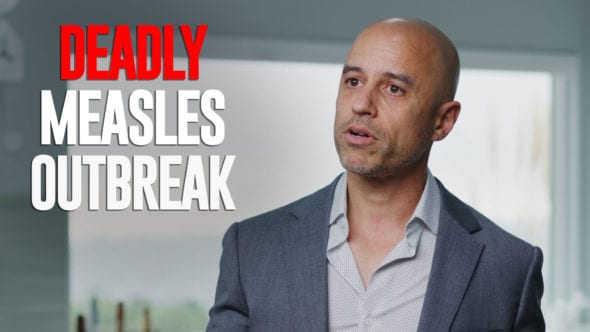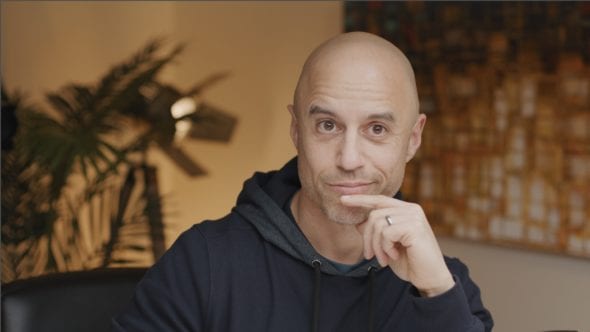We feel like there’s a little person sitting behind our eyes, pulling the strings and making decisions consciously. We’re wrong.
There’s a general consensus among those in the know that free will is a kind of illusion. But that doesn’t mean we shouldn’t behave as if we DO have free will. Accountability, who we surround ourselves with, and our ability to know our own mind all contribute to our ability to make wiser “choices”…even if it’s not so much free will but “free won’t.”
https://www.facebook.com/ZDoggMD/posts/10157029462747095
– We’re rolling. All right. Hey what’s up, Z-pack, it’s ZDoggMD, check it out. So I wanna talk about something that I think underlies almost everything we talk about on the show. We talk about a culture of getting rid of blame in healthcare. We talk about how people make mistakes because of the neurochemistry of how our brain works, whether it’s leaving a child in a car, or whether it’s mixing up Versed with Vecuronium.
The question is, how do we manage in the world when people do these things, if we assume people have something called free will? In other words, we are the author of our thoughts, and we’re the agents of our decisions. Let me explain what that means. We all have this sense, in our mind, that there’s a little person behind our eyes pulling the strings, making decisions.
In other words, if I choose to go out and have a McDonald’s McDouble because it’s on the dollar menu, all right, and it’s only a buck, and I don’t know why anyone would get anything else at McDonald’s because it’s only a buck. It’s two patties with cheese. If I make that decision, I feel like I, the self in my mind, made that decision. But when you really look, not only at the neurochemistry, the neurophysiology, but the philosophy, if we actually investigate where these decisions come from, they’re coming from darkness. The thought bubbles up from your unconscious mind, and your conscious awareness sees it and goes, ooh, I want a hamburger. I’m gonna go do that.
That’s not free will, okay? That is unconscious processes that are the sum of your genetics, your environment, what you ate yesterday, your education, the people around you. Everything sums up in that very moment, that very present moment to bubble up that decision that is yours. So the question is, and Sam Harris, and multiple neuroscientists have all written about free will as being a kind of illusion.
So the question is, we’re not really the author of our thoughts. Now people are gonna come at me right away. Yo Z, no that’s not true. We totally are the author of our thoughts, particularly if you’re particularly religious, you feel like, well then how am I supposed to hold myself morally accountable if I don’t make the decisions?
Here’s the thing. This is not a philosophy that makes you a nihilist that says, well I’m just gonna do whatever we want. And we shouldn’t punish people by throwing them in jail because they’re just robots making decisions that aren’t theirs. No, that’s not how it works. You didn’t listen. What I’m saying is, we are the sum total of all our conditioning and our genetics. That means that if we are even aware, okay, that what’s around us, who we surround ourselves with, what we read, the ideas we’re exposed to can influence these decisions and these thoughts that bubble up.
That if we can meditate we can actually have a space between the thoughts that bubble up and a true free will, where we, it’s more like a “free won’t.” You see a decision, you go, I’m gonna do, no I’m not. Oh that’s interesting, that’s a thought that I want to have this McDouble. Do I really need that? There’s a lot of reasons I shouldn’t do that. I’m not gonna do that.
That’s real free will. So just the idea that we surround ourselves with good people, we change systems to encourage good behavior, and we do hold people accountable. You go to jail, you go to prison if you violate one of our social norms. That will condition people all right, so that the decisions that bubble up are more productive to society. But the main idea around jettisoning this idea that we have free will is getting rid of vengeance and judgment and retribution. It’s not real.
We need to work from a premise of, first of all, forgiveness. And second of all, helping people condition themselves so that they do the right thing. And getting rid of this idea that we have to bomb a country because they did something to us, or we have to throw someone in jail and torture them because they’re a bad person. That’s not real. What’s real is that we’re all doing our best as these neuronal storms going across the face of the Earth doing the best we can and interacting with other storms. And maybe we can create paths that make these storms spin in more beneficial ways that are more compassionate and helpful to everyone. And the first step is getting rid of the illusion that we have free will. All right, I know this makes no sense. I don’t care, enjoy it. We out.
Category
- The ZDoggMD Show (817)
- Featured Videos (189)
- Doc Vader (142)
- Against Medical Advice (128)
- Medical Humor (95)
- Public Service Announcements (87)
- Music Parodies (74)
- Nurses (59)
- Meditation (45)
- The VPZD Show (38)
- ZVlogg (36)
- ZTalks (28)
- ZBlogg (24)








